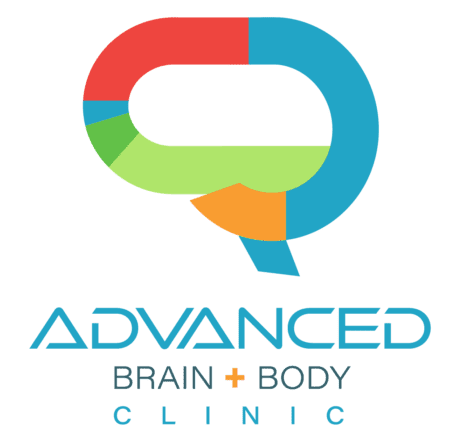What is Transcranial Magnetic Stimulation?
Transcranial Magnetic Stimulation (TMS) was developed in 1985, and has been FDA-approved since 2008 as an alternative treatment for depression. TMS is covered by most health insurance plans for those with treatment resistant depression (TRD) which is defined as a patient who has tried 4 or more antidepressant medications and therapy without relief. It can also help people with symptoms of PTSD, panic attacks, suicidal thoughts, social anxiety disorder, seasonal affective disorder, and other mental illnesses.
How does TMS work?
This noninvasive, outpatient procedure uses repetitive pulsed magnetic fields similar to those in an MRI (magnetic resonance imaging) machine to stimulate the executive functioning center of the brain, called the dorsolateral prefrontal cortex (DLPFC), with an alpha frequency wavelength similar to what your brain naturally exhibits in a focused, relaxed and restful state. This alpha frequency can also be naturally increased through meditation, mindfulness, yoga and exercise. Due to its repetitive nature, it is often also referred to as repetitive transcranial magnetic stimulation (rTMS).
TMS therapy for depression helps the brain transition out of the brain’s default mode network (DMN), which typically involves perseverating on negative thoughts in someone who suffers from unipolar depression and anxiety.
TMS improves executive functioning (memory focus, attention, learning) in any individual, though can be especially helpful in people who suffer from depression and anxiety, as studies show that these disorders have a negative impact on overall cognition.
Is TMS like electroconvulsive therapy (ECT)?
While both procedures are effective in treating depression, TMS is very different from ECT. ECT is done under anesthesia. During ECT, electricity is introduced into the brain, sometimes injuring the brain. ECT can cause memory and concentration problems. During TMS therapy, the patient is awake and alert throughout the entire treatment. No sedation is necessary with TMS treatment, and patients may return to regular activities immediately following treatment. During TMS, electromagnetic waves are used to pulse the brain stimulating normal physiological reactions. No negative impacts on memory or concentration have been reported with TMS therapy.
How does TMS compare to oral antidepressant medications?
People with anxiety disorders or depression who have failed four or more antidepressants have less than a 10%, or 1 in 10, chance of improving if given another antidepressant such as a selective serotonin reuptake inhibitor (SSRI). Those same people would have a 70%, or 7 in 10, chance of responding to TMS.
rTMS treatment does not affect any other parts of the body except for the small part of the brain that it targets. Therefore, it has very few side effects, unlike oral antidepressants. TMS is the best antidepressant option for any depression, anxiety, and PTSD sufferers who are pregnant or breast-feeding, concerned about drug interactions, or wish to avoid taking pharmaceuticals.
No sedation or anesthesia is needed, giving patients the freedom to drive themselves home or return to work after receiving brain stimulation therapy.
TMS treatments for depression are generally given daily, five days per week for six weeks, followed by one treatment per week for the next six weeks. Sessions last 15 to 30 minutes. Some patients may see their depression go into complete remission, while others may need occasional maintenance treatments after their initial treatment sessions are completed. Maintenance TMS protocols are generally not needed.
What are the side effects of TMS therapy?
TMS therapy side effects are typically mild to moderate and dissipate rapidly after the treatment session ends. TMS side effects may include:
- Scalp discomfort
- Headaches
- Seizures (extraordinarily rare)
During clinical trials, less than 5% of patients stopped their trial due to TMS treatment side effects. If side effects are a problem, the strength of the magnetic pulses can be temporarily reduced to ensure the comfort of the patient. Headaches from TMS can be treated with over-the-counter pain medications as needed.
How do I get started?
Talk to your doctor or one of our mental health professionals at Advanced Brain + Body Clinic Ketamine TMS (AB+BC) to see if TMS is right for you. To schedule an introductory appointment with AB+BC, call 612-682-4912 or email office@advancedbrainbody.com. After you and your provider have decided that TMS is the right option for you, schedule your first session with Advanced Brain + Body Clinic Ketamine TMS to start improving your depression symptoms.
What should I expect in my first treatment session?
At your first session, you will sit in a comfortable chair wearing ear protection. Then, your technician will gently place a plastic coil on your head. This coil will send repetitive magnetic pulses through the skull and 2-3 centimeters into the brain. Throughout the 15-30 minute session, you will hear clicking sounds and feel a tapping sensation on your forehead when the TMS machine is turned on. You may feel some scalp discomfort during your session and for a short time afterward.
If you think TMS might be the right fit for you, give us a call at 612-682-4912 to schedule an introductory appointment.

Stephen Manlove, MD is one of the most entrepreneurial psychiatrists in the upper Midwest. Dr. Manlove graduated from the University of Minnesota Medical School and completed residencies in Psychiatry and Internal Medicine through the University of Virginia Medical School. He holds multiple board certifications in psychiatry/neurology, internal medicine and forensic psychiatry. This deep understanding of medicine gives him a unique ability to practice truly holistic psychiatry—fusing lifestyle changes and brain health best practices with genetic testing and a detailed laboratory workup to develop a personalized plan for each patient. As an early adopter of transcranial magnetic stimulation (TMS) and ketamine/Spravato, he and the Manlove Brain + Body team have helped thousands of patients suffering from treatment resistant depression, anxiety and PTSD.

